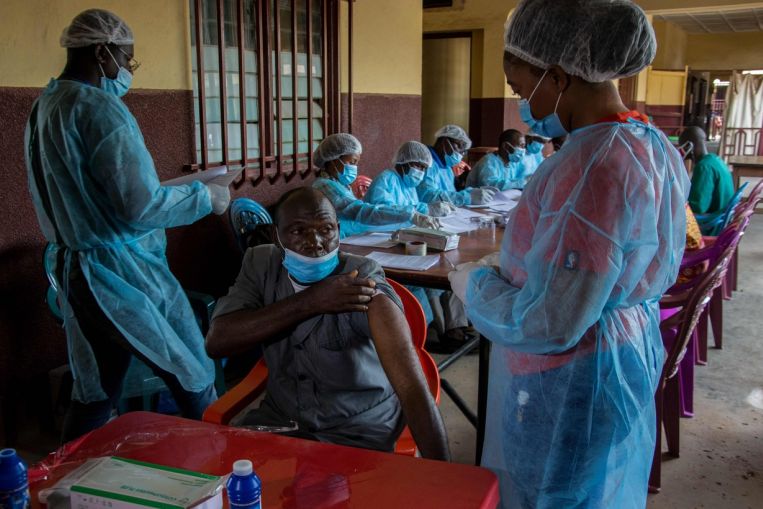Watching Euro 2020 could bring on a HEART ATTACK: Cases rise by more than 5% during big summer football matches, study warns
- Scientists analysed hospital admissions in Germany during the 2014 World Cup
- Compared to the month after, heart attack cases rose by 5.4 per cent
- Hormones released during stress can lead to clots that cut off blood to the heart
Tomorrow night, football fans across the UK will tune in at 8pm to watch England and Scotland go head-to-head in the Euros.
While the game is likely to be an anxious affair for many fans, scientists have now warned that watching the football could actually bring on a heart attack.
Researchers from Johannes Gutenberg-University Mainz analysed hospital admissions in Germany during the 2014 World Cup in Brazil, and found that heart attack cases rose by more than five per cent during the tournament.
The team hopes the findings will encourage hospitals to prepare for the Euros by providing extra staff and beds during big games.
Scroll down for video
Researchers from Johannes Gutenberg-University Mainz analysed hospital admissions in Germany during the 2014 Cup in Brazil, and found that heart attack cases rose by more than five per cent during the tournament. Pictured: England fans celebrate during the Euro 2020 match between England and Croatia
Symptoms of a heart attack
Symptoms of a heart attack can include:
– chest pain – a sensation of pressure, tightness or squeezing in the centre of your chest
– pain in other parts of the body – it can feel as if the pain is travelling from your chest to your arms (usually the left arm is affected, but it can affect both arms), jaw, neck, back and tummy (abdomen)
– feeling lightheaded or dizzy
– sweating
– shortness of breath
– feeling sick (nausea) or being sick (vomiting)
– an overwhelming sense of anxiety (similar to having a panic attack)
– coughing or wheezing
Although the chest pain is often severe, some people may only experience minor pain, similar to indigestion. In some cases, there may not be any chest pain at all, especially in women, older people, and people who have diabetes.
It’s the overall pattern of symptoms that helps to determine whether you are having a heart attack.
Source: NHS
In the study, the team compared admissions and in-hospital mortality from heart attacks across four time periods: during the World Cup from 12th June to 13th July 2014 and during three periods without large football events, from 12th June to 13th July 2013, from 12th June to 13th July 2015 and between 14th July and 14th August 2014.
Although there were no differences in the total numbers of patients with heart attacks in hospital during the months of June and July for the years 2011 to 2015, the number of hospitalisations was highest in 2014.
Lead author Dr Karsten Keller, a cardiologist at Johannes Gutenberg-University Mainz, said: ‘It was associated with a higher number of hospital admissions for heart attacks.’
There were a total of 18,479 over the 31 days of the World Cup – around a thousand more than the 17,482 in the next 31.
It amounted to a 5.4 percent increase due to emotions running high in fans, causing spikes in blood clotting hormones.
Heart attacks in the World Cup were also 3.7 and 2.1 per cent higher than the 17,794 and 18,089 admissions the year later and before, respectively.
Dr Keller said: ‘Watching football at large events such as the World Cup or European Championships is accompanied by excitement.
‘But is can also lead to anger – contributing to the occurrence of heart attacks.’
He advised fans with known coronary artery disease not to get too wound up or frustrated, as they will be particularly vulnerable.
Dr Keller said: ‘Patients with typical symptoms of heart attack might wait too long to come to the emergency room and chest pain units or phone the ambulance while watching the games at home.’
Delving deeper into the findings, the researchers found that the highest in-hospital mortality was observed on the day of the final, when Germany beat Argentina 1-0 in extra time.
Death rates from heart attacks also rose from eight to 12 per cent on this day.
Dr Keller added: ‘It might contribute to the assumption some patients with typical heart attack symptoms wait too long at home before phoning the ambulance or presenting at the hospital.
‘Since time is key, they may have presented too late – and the mortality rate increased.’
The researchers advised fans with known coronary artery disease not to get too wound up or frustrated, as they will be particularly vulnerable (stock image)
How watching your football team lose really can break your heart
According to a 2019 study, fans of losing sides are 29 per cent more likely to suffer a deadly cardiovascular emergency – such as a heart attack, angina, acute coronary syndrome or stroke – on a match day than at other times.
By comparison, supporting the winning side is linked to a 20 per cent lower chance of a fatal incident.
Because the downsides of losing outweigh the positive effects of winning, spectators are on balance six per cent more likely to suffer a deadly heart-related event on match day.
Men appear more vulnerable, with their chance of fatal and non-fatal cardiovascular events increasing more steeply on football days than women.
The scientists thought it could be because men tended to care more about football.
Their research, outlined in the Journal of Sports Sciences, concluded: ‘Cardiovascular events are triggered by great mental stress and emotional upheaval in relation to soccer matches’.
Whether or not watching sport can increase your risk of a heart attack has been debated by health experts for years.
Three years ago, a study by Canadian scientists suggested watching your football team increases the risk of a potentially fatal heart attack.
Fans of successful clubs like Liverpool and Manchester City were more prone than those of perennial strugglers such as West Brom and Stoke.
But other studies have failed to confirm a link between important sporting occasions and acute cardiovascular illnesses.
The latest study in Scientific Reports is the most definitive to date as it focused on one of the world’s most successful football teams.
Dr Keller explained: ‘Importantly, soccer is the most popular sport in Germany.’
Overall, more than 34.5 million people watched the victory on TV at Brazil 2014 – about half the population.
Dr Keller said: ‘The findings suggest the increased mental stress of large, popular sporting events like the World Cup affect the occurrence of cardiovascular events.
‘It could inform ways of planning hospital capacities at times of potential increased stress.’
He described the identification of football as a potent trigger in heart attacks as of ‘outstanding importance.’
Cardiovascular disease is the world’s number one killer – accounting for a fifth of deaths in Europe and the US.
Dr Keller said: ‘Our study results show a strong and substantial increase in the total numbers of heart attacks during Brazil 2014 compared to the same 31-days comparison-periods.’
A smaller study of hospital emergency departments in Bavaria during Germany 2006 identified a similar trend.
Heart attacks in England also rose by a quarter after Alan Sherarer’s boys lost on penalties to Argentina at France 1998.
Dr Keller said: ‘Since the German team was not defeated at Brazil 2014 and won the championship, we were not able to distinguish between match days with defeats and wins.
‘However, our study demonstrated in accordance with most studies that World Cup soccer events are potent triggers of heart attack that should not be underestimated.’
While the reason for the link remains unclear, the researchers suggest that there could be a biological explanation. Hormones released during stress affect cell function, leading to clots that cut off blood to the heart.
Dr Keller continued: ‘A release of stress hormones might contribute to acute plaque rupture followed by blood clot formation in vessels – resulting in heart attack.’
A study during the final between Spain and the Netherlands at South Africa 2010 found a sharp rise in testosterone and cortisol levels in fans.
Dr Keller said: ‘Watching Brazil 2014 was a trigger of the occurrence of heart attack.
‘The final match with a scant victory of Germany was accompanied by highest in-hospital mortality throughout the World Cup.
‘Our data may help to find better ways of planning hospital capacities, which is essential for delivering sufficient capacity at the right time point to meet future enormous health-care challenges.’
He added: ‘We were not suprised by the results. We would advise fans to present timely at hospital, if there are typical symptoms of heart attack and not wait for the end of the match.’
WHAT MAKES THE BEST FOOTBALLER?
Players with great skill, such as Lionel Messi (pictured) are more likely to win games than players with superior athletic ability
Skillful footballers are more likely to win matches than even the most athletic players, according to research from the University of Queensland.
A study found that balance and skill when controlling the ball can tip a game toward a win more than speed, strength, or fitness.
The researchers say their study could help football coaching academies focus their training on player attributes that are more likely to win games.
The Queensland team used analytical techniques developed in evolutionary biology to determine the impact of a player’s skill, athletic ability, and balance on their success during a game.
They found that a player’s skill that was the most important factor to their and their team’s performance.
Players will higher skill were more likely to be more involved in games and have more successful contributions.
However, players with top athletic abilities like speed, strength and fitness were not associated with higher success rates in games.
‘Higher skill allows players to have a greater impact on the game,’said lead researcher Dr Robbie Wilson, from the University of Queensland, Australia, told MailOnline.
‘Accurate passing and greater ball control are more important for success than high speed, strength and fitness.
‘It may be obvious to fans and coaches that players like Lionel Messi and Neymar are the best due to their skill.
‘However, 90 per cent of research on soccer players is based on how to improve their speed, strength, and agility — not their skill.’
Source: Read Full Article





